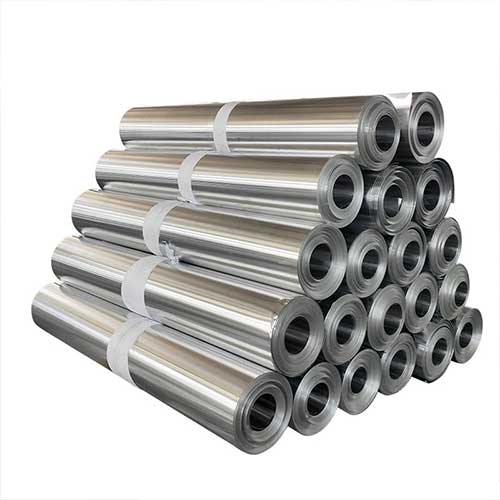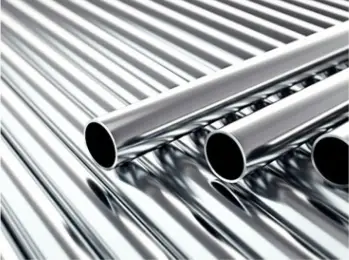
Aluminum is a key material in many industries because it is light, strong, and very durable. In this article, we’ll talk about what makes aluminum products high quality, what their main benefits are, and how to choose the right materials for long-term results.
This guide is designed to help builders, manufacturers, engineers, and procurement professionals make better choices when they need to get aluminum for important projects.
Table of Contents
Why Quality Aluminum Products Matter More Than Ever
Aluminum is already well-known for being light and corrosion-resistant, but its real value lies in its versatility and performance in demanding environments. From energy-efficient buildings to lightweight vehicles, quality aluminum products contribute to increased efficiency, reduced maintenance, and longer lifespans of end-use components.
With global demand for sustainable and high-performance materials rising, aluminum continues to play a critical role in innovation. However, achieving the best outcomes depends on using materials that meet strict quality standards—not just any aluminum on the market.
Whether you’re building infrastructure or manufacturing precision equipment, starting with quality aluminum products is essential to delivering consistent results.
Understanding the Core Characteristics of Quality Aluminum Products
Strength-to-Weight Ratio: Lightweight Yet Robust
One of the most valued aspects of aluminum is its strength-to-weight ratio. It provides similar or superior strength compared to other metals at a fraction of the weight, making it ideal for structures that need to be strong without being heavy.
| Material | Density (g/cm³) | Tensile Strength (MPa) | Typical Use Case |
|---|---|---|---|
| Aluminum 6061 | 2.70 | 310–350 | Structural components, frames |
| Mild Steel | 7.85 | 370–440 | Beams, heavy-duty structures |
| Titanium Grade 2 | 4.51 | 345 | Aerospace, medical applications |
The chart above demonstrates how aluminum provides a competitive strength advantage at a much lower density, resulting in better fuel efficiency in transport applications and easier handling during installation.
Corrosion Resistance: Built to Withstand the Elements
Quality aluminum products form a protective oxide layer when exposed to air, which helps them resist corrosion naturally. This property makes them suitable for use in marine, coastal, and industrial environments where exposure to moisture and chemicals is common.
According to the Aluminum Association, architectural-grade aluminum components can maintain integrity for over five decades without significant corrosion. The longevity of aluminum is further improved through finishing options like anodizing or powder coating.
Durability Meets Sustainability
Sustainability is no longer a bonus—it’s a requirement in many industries. One of aluminum’s major advantages is that it is 100 percent recyclable. According to the International Aluminium Institute, over 75 percent of aluminum ever produced is still in use today.
Recycling aluminum requires just 5 percent of the energy needed for primary production, resulting in lower carbon footprints and operational savings. That makes aluminum not just durable and versatile but also an environmentally responsible material choice.
How to Evaluate and Choose Quality Aluminum Products for Your Project
Making the right aluminum selection can significantly impact cost, performance, and customer satisfaction. Here are three essential factors to consider.
Know Your Alloy
Aluminum comes in many grades and alloys, each with unique characteristics. The alloy type determines its mechanical properties, corrosion resistance, and formability.
| Alloy Type | Common Use | Notable Features |
|---|---|---|
| 6061 | Construction, trailers | Strong, weldable, corrosion-resistant |
| 5052 | Marine, automotive | Excellent corrosion resistance, formable |
| 7075 | Aerospace, defense | Extremely strong, less corrosion-resistant |
It’s important to choose an alloy that matches your application’s requirements and to request detailed documentation such as Material Test Reports (MTRs) to ensure authenticity.
Consider Surface Treatment
The surface treatment of aluminum affects its appearance, durability, and corrosion resistance. Common surface treatments include:
- Anodizing for increased surface hardness and corrosion protection
- Powder coating for color customization and extra durability
- Brushed finishes for aesthetic appeal in architectural elements
Choosing the right treatment improves both the life expectancy and aesthetic value of the product.
Check for Certification and Standards Compliance
Always ensure the materials you use meet international quality and safety standards. Reputable suppliers will offer aluminum products that comply with:
- ISO 9001 (quality management systems)
- ASTM B221 (aluminum extrusions)
- RoHS and REACH (chemical safety regulations)
These certifications ensure that the aluminum products have been manufactured and tested in accordance with recognized quality benchmarks.
Applications: Where Quality Aluminum Products Make the Biggest Difference

The following sectors benefit most significantly from using high-quality aluminum.
Architectural and Structural Systems
Aluminum is widely used in building frameworks, window systems, roofing panels, and curtain walls. Its lightweight nature allows for innovative design, while its corrosion resistance ensures long-term durability, especially in outdoor and humid environments.
Transportation and Mobility
Reducing vehicle weight is key to improving fuel economy. Aluminum components help achieve this goal without sacrificing strength. According to the Aluminum Transportation Group, incorporating aluminum into vehicle design can reduce vehicle weight by up to 30% and improve fuel efficiency by 15%.
Renewable Energy Systems
Solar panel frames, wind turbine housings, and energy storage enclosures rely heavily on aluminum. Its resistance to UV rays and non-magnetic properties make it ideal for sensitive, high-performance applications in the renewable energy sector.
Conclusion
Investing in quality aluminum products is not just a technical decision—it’s a strategic one. When you prioritize high-grade materials, you benefit from lower maintenance costs, longer product life, and improved performance in every application.
With global markets demanding lighter, greener, and more durable solutions, quality aluminum is becoming the standard for forward-thinking companies. Whether you’re working on infrastructure, manufacturing, or renewable energy, choosing the right aluminum materials can drive better results across the board.
If you’re looking for dependable aluminum solutions tailored to your project, our team is ready to help. We offer a wide range of alloy options, finish types, and technical support to ensure your success from design to delivery.
FAQ
Are all aluminum products considered high quality?
No. Quality varies depending on the alloy composition, manufacturing process, and supplier standards. It’s essential to verify alloy type and certifications before use.
How do I verify a supplier’s credibility?
Look for ISO certification, product traceability, transparent MTRs, and industry experience. Third-party testing can also confirm material performance.
Which surface finish is best for harsh outdoor conditions?
Anodizing creates a hard, wear- and corrosion-resistant surface, making it ideal for outdoor applications.
Is there a difference between recycled and new aluminum?
Functionally, no. Recycled aluminum retains all of its original strength and performance characteristics when processed correctly. It’s also far more energy-efficient.
Can all aluminum be welded?
Weldability depends on the alloy. While 6061 is easily welded, 7075 may crack during the welding process and typically requires more advanced techniques.

